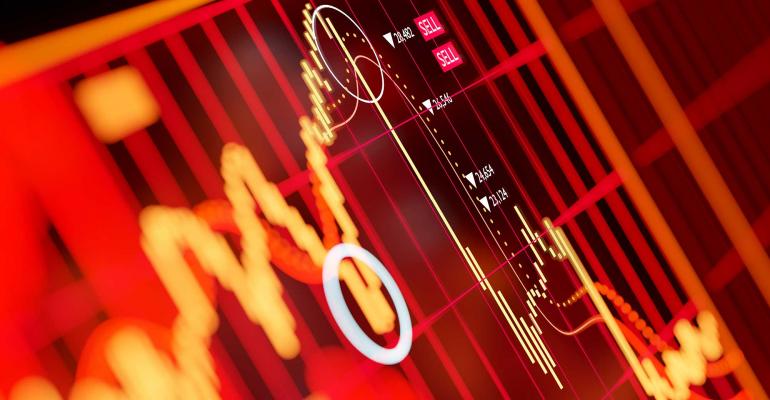(Bloomberg)—KKR & Co., the private investing giant that’s been picking through battered bond markets, said it’s favoring risky bonds over stocks after this year’s steep selloff.
High-yield spreads have widened to meet long-term averages, while stocks are still trading above historical levels, according to KKR. “Credit is trading at attractive levels and the yields are inviting,” KKR’s credit and markets team, co-headed by Chris Sheldon, wrote on Monday in a letter to investors. And in private markets, “this could be a golden vintage for junior debt.”
KKR likened the high-yield trade to opportunities available in early 2020, when the onset of the global pandemic sparked a debt-market plunge. KKR spent billions buying bonds and loans as many other investors stayed away, and the firm resurrected a fund known for capitalizing on market dislocations. That fund has since posted a 14% gross return, according to a regulatory filing.
KKR tempered its outlook with a word of warning: “No one is immune from further weaknesses should investors’ outlooks grow more pessimistic,” the New York-based company said in the letter, adding that the Federal Reserve is no longer providing support in the form of ultra-low interest rates. “This time, there is no Fed backstop.”
Still, the firm estimated that less than 15% of days over the last decade have seen high-yield credit spreads beyond 600 basis points -- meaning selloffs have traditionally been short-lived. Buyers have been stepping into the market in recent weeks, with July having been the best rally globally for junk bonds in two years.
KKR said 60% of the high-yield market is trading below $90 per $100 face value, and short-dated debt that will be repaid in a couple of years is selling at a “steep discount.” Retail outflows, forced selling from banks and large losses from currency headwinds have created an opportunity “to play offense and source investment opportunities at wider levels amidst thin liquidity.”
KKR added that it expects volatility to continue in the near term and economic growth to be hampered.
© 2022 Bloomberg L.P.





